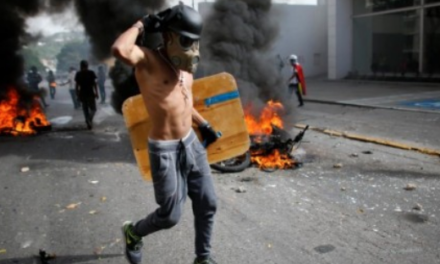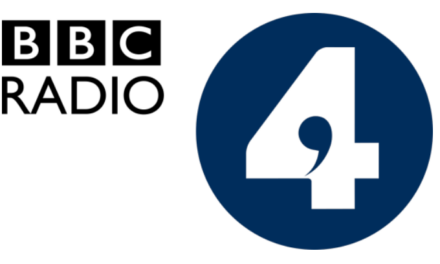Aljazeera report on Colombia border closing and Venezuela’s response to coronavirus
While ten days ago there was scarcely a sign of official response from the Maduro government with respect to the coronavirus pandemic, in the past week Venezuela has taken some of the most extreme measures in the region. They have implemented a nationwide quarantine, requiring everyone to stay home unless they were going to work or for groceries and, against the advice of the World Health Organization, are obliging everyone to wear face masks when in public space.
Venezuela’s vigorous response is probably based on a recognition of how vulnerable it is, given the compromised health of many of its citizens and the deterioration of public health services. But it is unclear how successful the quarantine will be as many Venezuelans live day-by-day on their meagre earnings in the informal economy, and have to queue for access to water and gas. What is more, the quarantine appears to be creating logistical problems in the transportation of goods from the ports and the interior to urban centers.
The government has also restricted international flights coming from Europe, Colombia, Panama and the Dominican Republic leaving the country almost completely isolated.
In a surprising move, Maduro sent a letter to the International Monetary Fund seeking an emergency $5 billion loan to address the crisis in the face of the collapse of the price of oil. Nonetheless, the International Monetary Fund has said that the loan request can’t be considered because there is no clarity among members regarding who is Venezuela’s rightful president.
Disasters are always a challenge but frequently provide authoritarian governments with an opportunity as the de facto power they wield suddenly becomes much more important to the population and its neighbors (see United Nations High Commission for Human Rights warning here and Human Rights Watch’s statement here). Maduro has indeed been able seize the political spotlight from Juan Guaidó and gain some implicit international recognition from Colombia.
When the Colombian government announced the closure of the border with Venezuela, the Maduro government condemned it and made public calls to President Ivan Duque to reestablish direct communication and establish joint measures against the epidemic. After an initial rejection, Duque announced the two countries would coordinate their actions with the help of the World Health Organization and the Pan American Health Organization. Shortly after, the government in Caracas announced that a first meeting took place. Later in the week, the ombudsmen of the two countries released a joint statement promising open channels of communication and coordinating actions.
The Venezuelan opposition led by Juan Guaidó asked the government to allow the entry of international humanitarian aid to the country. Risk analyst James Bosworth suggest that “while [Guaidó’s] leadership is appreciated and he retains much higher levels of public trust than Maduro, the statements have also highlighted how incapable Guaido’s government is of doing anything other than making public comments” (see “Boz’s” excellent analysis of the politics and regional implications of coronavirus in Venezuela). The fact that Guaidó does not control any of the state’s functioning institutions makes his efforts difficult, with Maduro’s actions drawing the attention of the news cycle and the population.
- Some opposition politicians are operationalizing the crisis in the usually way, as part of the push for political power.
- Other political leaders and opinion-makers have argued for an agreement. Economist Francisco Rodriguez has written that leaders need to “put aside their differences and join forces to confront a threat to the lives of everyone.” See similar statements from Trino Marquez, Luis Vicente León and Henry Falcón.
Migration
- Colombia has closed its border with Venezuela. The measure has lead to chaos on the border as people recur to unofficial passage points across the 2000 mile border. WOLA’s Geoff Ramsey has argued that the border crossings could provide a boost to organized crime.
- Brazil will partially close its border with Venezuela. The measure does not include trade activities and good transportation, as the northern Brazilian state of Roraima is highly dependent on Venezuela.
National Electoral Council
- Venezuela’s electoral nominations committee decided to suspend its efforts to renew the National Electoral Council (CNE), due to coronavirus.
Civil Society
- Over 100 Venezuelan NGOs signed a letter demanding that Venezuelan authorities guarantee and respect the work of humanitarian actors during the health crisis, take measures for the protection of the vulnerable populations, and guarantee access to information.
- Una Ventana a la Libertad, a prisoners rights organizaiton, demanded the Maduro government pay immediate attention to the prison population. The organization argues that in the current context, the prisoners may suffer more significant health complications than those already suffered for several years.
Beyond Coronavirus
- The Trump administration sanctioned the TNK Trading International, a subsidiary of Russia’s state-controlled Rosneft Oil Company. The U.S. said that TNK was involved in the sale and transport of large quantities of Venezuelan oil. TNK described the sanctions as illegal and unfounded, and stressed that its activities in Venezuela do not serve political interests.
- According to human rights group PROVEA, between 2017 and 2018, extrajudicial executions represented approximately 89% of the cases of violation of the right to life.



